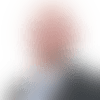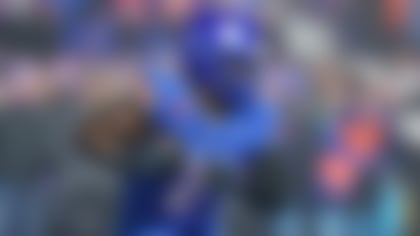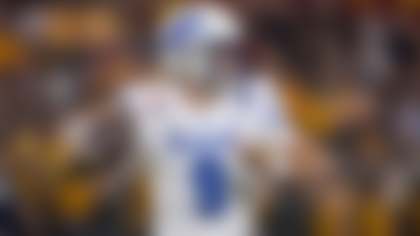Why provide instant grades on the selections of prospects who have yet to take an NFL snap? Well, you're reading this, aren't you? Considering the makeup of every roster and the factors surrounding each pick, Gennaro Filice and Nick Shook attempt a division-by-division assessment of the 2018 NFL Draft. Below is Nick's review of the AFC West.
NOTABLE SELECTIONS
BEST PICK: Bradley Chubb, DE, N.C. State
Denver Broncos, Round 1, No. 5 overall
Chubb could have gone as high as No. 1 in this draft. Instead, he fell to Denver at No. 5. Credit is due to general manager John Elway for avoiding the quarterback hype machine and going with the best player available on the board, filling a need that has been glaring since the Broncos won Super Bowl 50. Chubb's selection is the best because he immediately makes Denver's defense -- the backbone of its run to a world title -- much more threatening and forces teams to pick their poison: dedicate two blockers to Von Miller or Chubb? One of the two is almost guaranteed to frequently get a one-on-one matchup, making it that much easier to stop opposing offenses. We know the saying about defenses and championships; Denver landed a championship-caliber player without having to give anything up. Well done.
MOST SURPRISING PICK: Breeland Speaks, DT, Mississippi
Kansas City Chiefs, Round 2, No. 46 overall
Speaks is surprising because his selection required the Chiefsto trade up to get him, and he went a round earlier than most projections. GM Brett Veach found reason to take him, though. With Kansas City moving on fromTamba Hali, the acquisition makes more sense in the bigger picture, once we're outside the hot-take incubator that is the draft. Speaks will also have to avoid off-field pitfalls (he was arrested and charged with a DUI in college), and he does have some weaknesses, but if he matches the performance and consistency of a player like Hali, he'll have been worth the pick.
BIGGEST SLEEPER: Arden Key, Edge, LSU
Oakland Raiders, Round 3, No. 87 overall
A year ago, Key was being talked about as a potential top-10 pick, so much so that he drew plenty of eyes throughout his final season at LSU. Off-field issues (Key told NFL teams before the draft that he'd undergone voluntary rehab for marijuana use) and a down 2017 season likely propelled his slide into the third round, but if he can stay on the straight and narrow as a pro, his talent remains undeniable. Key would be the ideal successor to six-year veteran Bruce Irvin, as long as he gets his conditioning in order and puts it all together at the professional level. A few years from now, this could look like a genius pick on the part of GM Reggie McKenzie.
TEAM GRADES
NOTE: Draft classes are ranked from best to worst within the division.
» Round 1: (No. 5 overall) Bradley Chubb, DE, N.C. State.
» Round 2: (40) Courtland Sutton, WR, SMU.
» Round 3: (71) Royce Freeman, RB, Oregon; (99) Isaac Yiadom, CB, Boston College.
» Round 4: (106) Josey Jewell, LB, Iowa; (113) DaeSean Hamilton, WR, Penn State.
» Round 5: (156) Troy Fumagalli, TE, Wisconsin.
» Round 6: (183) Sam Jones, C, Arizona State; (217) Keishawn Bierria, LB, Washington.
» Round 7: (226) David Williams, RB, Arkansas.
In taking Chubb fifth overall, Denver got the edge rusher it has missed since the retirement of DeMarcus Ware. At that position, it's quite a haul (at least on paper) for the Broncos, who didn't have to move up to grab a prospect who should be an immediate-impact player. From there, John Elway added a big-bodied receiver (Sutton) in a move that might prove to be prescient, with Demaryius Thomas (30) and Emmanuel Sanders (31) both getting up there in age. Elway wasn't done addressing the offense; in Round 3, he selected Freeman as a back who should contend for the starting job right away. Yiadom might end up being the best pick of this class if he replaces departed veteran Aqib Talib effectively. From there, Elway grabbed a good value in Jewell and found an interior lineman in Jones who very well could man the position for the next decade. Bierria was also a late-round, low-risk find with potentially high upside. Overall, Elway bounced back from a couple of subpar drafts by filling multiple needs.
» Round 1: (No. 17 overall) Derwin James, S, Florida State.
» Round 2: (48) Uchenna Nwosu, Edge, USC.
» Round 3: (84) Justin Jones, DT, N.C. State.
» Round 4: (119) Kyzir White, S, West Virginia.
» Round 5: (155) Scott Quessenberry, C, UCLA.
» Round 6: (191) Dylan Cantrell, WR, Texas Tech.
» Round 7: (251) Justin Jackson, RB, Northwestern.
Los Angeles found itself with one of the best picks of the first round when James fell to No. 17. Nwosu made his living (a productive one) on the edge at USC, but he could end up playing off the ball and proving the Chargers wise for selecting him. Brandon Mebane (33) isn't getting any younger; Jones will have a chance to learn behind an established veteran while maintaining the potential to slide into the starting role in the near future. Quessenberry is an intelligent center who will have time to develop into an effective pro while sitting behind Mike Pouncey. It was interesting that the Chargers didn't select a tackle, instead adding clout to their belief in Russell Okung for at least 2018.
» Round 2: (No. 46 overall) Breeland Speaks, DT, Mississippi.
» Round 3: (75) Derrick Nnadi, DT, Florida State; (100) Dorian O'Daniel, LB, Clemson.
» Round 4: (124) Armani Watts, S, Texas A&M
» Round 6: (196) Tremon Smith, CB, Central Arkansas; (198) Kahlil McKenzie, DT, Tennessee.
Speaks is a quality football player, but many deemed his selection too high. Then again, if he's your guy, go get him, right? Speaks should provide an edge presence in the absence of departed veteran Tamba Hali. Kansas City then fortified its front four by going with a defensive tackle in Nnadi to compete with restricted free-agent signing Xavier Williams. The Chiefs grabbed an experienced college player in four-year starter Watts for the secondary, but they waited until the sixth round to select a cornerback, after the franchise traded away Marcus Peters. An all-defense draft isn't bad for a team that needed replenishing on that side of the ball, but the players chosen will leave much of this analysis up for a re-grade a year or two from now.
» Round 1: (No. 15 overall) Kolton Miller, OT, UCLA.
» Round 2: (57) P.J. Hall, DT, Sam Houston State.
» Round 3: (65) Brandon Parker, OT, North Carolina A&T; (87) Arden Key, Edge, LSU.
» Round 4: (110) Nick Nelson, CB, Wisconsin.
» Round 5: (140) Maurice Hurst, DT, Michigan; (173) Johnny Townsend, P, Florida.
» Round 6: (216) Azeem Victor, LB, Washington.
» Round 7: (228) Marcell Ateman, WR, Oklahoma State.
Jon Gruden's return to coaching brought the influence of late owner Al Davis, who at times appeared to be drafting for the Raiders from the great beyond. Oakland took perceived risks in selecting Key, a high-upside edge rusher, then doubled down on red flags by grabbing Victor, who struggled to stay on the field in his final two seasons due to multiple suspensions. If both players pan out, it'll end up looking like a genius pair of selections, but the "if" is big. Credit is due for getting ahead of a looming issue at tackle with the choice of Miller, who will eventually replace veteran Donald Penn. The news of Vadal Alexander's suspension also brings more sense to the selection of Parker. Hurst is a boom-or-bust prospect due to health issues, but he could bring great value if he is available more often than not. This is a group that could look much, much better in a few years, but it carries a lot of risk right now.
Follow Nick Shook on Twitter @TheNickShook.
















